30 start with W start with W
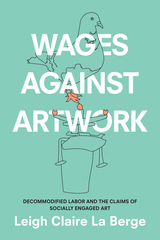
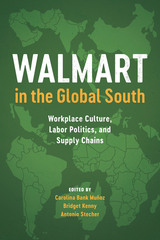
As the largest private employer in the world, Walmart dominates media and academic debate about the global expansion of transnational retail corporations and the working conditions in retail operations and across the supply chain. Yet far from being a monolithic force conquering the world, Walmart must confront and adapt to diverse policies and practices pertaining to regulation, economy, history, union organization, preexisting labor cultures, and civil society in every country into which it enters. This transnational aspect of the Walmart story, including the diversity and flexibility of its strategies and practices outside the United States, is mostly unreported.
Walmart in the Global South presents empirical case studies of Walmart’s labor practices and supply chain operations in a number of countries, including Chile, Brazil, Argentina, Nicaragua, Mexico, South Africa, and Thailand. It assesses the similarities and differences in Walmart’s acceptance into varying national contexts, which reveals when and how state regulation and politics have served to redirect company practice and to what effect. Regulatory context, state politics, trade unions, local cultures, and global labor solidarity emerge as vectors with very different force around the world. The volume’s contributors show how and why foreign workers have successfully, though not uniformly, driven changes in Walmart’s corporate culture. This makes Walmart in the Global South a practical guide for organizations that promote social justice and engage in worker struggles, including unions, worker centers, and other nonprofit entities.

Reports of sexual violence in armed conflict frequently appear in political discussions and news media, presenting a stark contrast to a long history of silence and nonrecognition. Conflict-related sexual violence has transitioned rapidly from a neglected human rights issue to an unambiguous security concern on the agendas of powerful states and the United Nations Security Council. Through interviews and primary-source evidence, Kerry F. Crawford investigates the reasons for this dramatic change and the implications of the securitization of sexual violence.
Views about wartime sexual violence began changing in the 1990s as a result of the conflicts in the former Yugoslavia and Rwanda and then accelerated in the 2000s. Three case studies—the United States' response to sexual violence in the Democratic Republic of Congo, the adoption of UN Security Council Resolution 1820 in 2008, and the development of the United Kingdom’s Preventing Sexual Violence in Conflict Initiative—illustrate that use of the weapon of war frame does not represent pure co-optation by the security sector. Rather, well-placed advocates have used this frame to advance the antisexual violence agenda while simultaneously working to move beyond the frame’s constraints. This book is a groundbreaking account of the transformation of international efforts to end wartime sexual violence.

Following a long history of smaller-scale and largely unsuccessful resource development efforts, New Hanover became the site of three multinational-controlled special agricultural and business leases (SABLs) that combined to cover over 75 percent of the island for ninety-nine-year lease terms. These agroforestry projects were part of a national effort to encourage “sustainable” rural development by tapping into the growing global demand for agricultural lands and crops like oil palm and biofuels. They were supposed to succeed where the smaller-scale projects of the past had failed. Unfortunately, these SABLs resulted in significant forest loss and livelihood degradation, while doing little to promote the type of economic development that many Lavongai had been hoping for.
It is within this context that We Stay the Same grounds questions of hope for transformative economic change within Lavongai assessments of the inequitable relationships between global processes of resource development and the local lives that have become increasingly defined by the necessities and failures of these processes. Written in a clear and relatable style for students, We Stay the Same combines ethnographic and ecological research to show how the Lavongai continue to survive and make meaningful lives in a situation where their own hopes for a better future have often been used against them as a mechanism of a more distantly profitable dispossession.
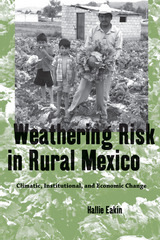
In Weathering Risk in Rural Mexico, Hallie Eakin draws on ethnographic data collected in three agricultural communities in rural Mexico to show how economic and climatic change not only are linked in cause and effect at the planetary scale but also interact in unpredictable and complex ways in the context of regional political and trade relationships, national economic and social programs, and the decision-making of institutions, enterprises, and individuals. She shows how the parallel processes of globalization and climatic change result in populations that are “doubly exposed” and thus particularly vulnerable.
Chapters trace the effects of El Niño in central Mexico in the late 1990s alongside some of the principal changes in the country’s agricultural policy. Eakin argues that in order to develop policies that effectively address rural poverty and agricultural development, we need an improved understanding of how households cope simultaneously with various sources of uncertainty and adjust their livelihoods to accommodate evolving environmental, political, and economic realities.
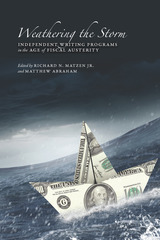
Leading writing specialists at the University of Texas at Austin, Syracuse University, the University of Minnesota, and many other institutions document and think carefully about the on-the-ground obstacles that have made the creation of IWPs unique. From institutional naysayers in English departments to skeptical administrators, IWPs and the faculty within them have surmounted not only negative economics but also negative rhetorics. This collection charts the story of this journey as writing faculty continually make the case for the importance of writing in the university curriculum.
Independence has, for the most part, allowed IWPs to better respond to the Great Recession, but to do so they have had to define writing studies in relation to other disciplines and departments. Weathering the Storm will be of great interest to faculty and graduate students in rhetoric and composition, writing program administrators, and writing studies and English department faculty.
Contributors: Linda Adler-Kassner, Lois Agnew, Alice Batt, David Beard, Davida Charney, Amy Clements, Diane Davis, Frank Gaughan, Heidi Skurat Harris, George H. Jensen, Rodger LeGrand, Drew M. Loewe, Mark Garrett Longaker, Cindy Moore, Peggy O’Neill, Chongwon Park, Louise Wetherbee Phelps, Mary Rist, Valerie Ross, John J Ruszkiewicz, Eileen E. Schell, Madeleine Sorapure, Chris Thaiss, Patrick Wehner, Jamie White-Farnham, Carl Whithaus, Traci A. Zimmerman
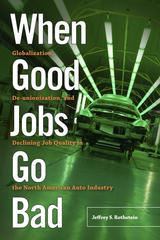

Daniel Shaviro tackles these tough questions, bringing legal, economic, and political perspectives to bear on a persistent problem not often given serious attention. When Rules Change: An Economic and Political Analysis of Transition Relief and Retroactivity focuses on tax law changes to develop an in-depth understanding of the transitional issues inherent in any substantive rule change and also to advance a set of normative policy guidelines applicable to any such circumstance. Shaviro reframes traditional approaches to the problem of retroactivity and offers new insights into both the theory and policy of legislative transitions.
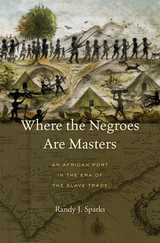
Annamaboe was the largest slave trading port on the eighteenth-century Gold Coast, and it was home to successful, wily African merchants whose unusual partnerships with their European counterparts made the town and its people an integral part of the Atlantic’s webs of exchange. Where the Negroes Are Masters brings to life the outpost’s feverish commercial bustle and continual brutality, recovering the experiences of the entrepreneurial black and white men who thrived on the lucrative traffic in human beings.
Located in present-day Ghana, the port of Annamaboe brought the town’s Fante merchants into daily contact with diverse peoples: Englishmen of the Royal African Company, Rhode Island Rum Men, European slave traders, and captured Africans from neighboring nations. Operating on their own turf, Annamaboe’s African leaders could bend negotiations with Europeans to their own advantage, as they funneled imported goods from across the Atlantic deep into the African interior and shipped vast cargoes of enslaved Africans to labor in the Americas.
Far from mere pawns in the hands of the colonial powers, African men and women were major players in the complex networks of the slave trade. Randy Sparks captures their collective experience in vivid detail, uncovering how the slave trade arose, how it functioned from day to day, and how it transformed life in Annamaboe and made the port itself a hub of Atlantic commerce. From the personal, commercial, and cultural encounters that unfolded along Annamaboe’s shore emerges a dynamic new vision of the early modern Atlantic world.

The long and pernicious relationship between fast food restaurants and the African American community
Today, fast food is disproportionately located in Black neighborhoods and marketed to Black Americans through targeted advertising. But throughout much of the twentieth century, fast food was developed specifically for White urban and suburban customers, purposefully avoiding Black spaces. In White Burgers, Black Cash, Naa Oyo A. Kwate traces the evolution in fast food from the early 1900s to the present, from its long history of racist exclusion to its current damaging embrace of urban Black communities.
Fast food has historically been tied to the country’s self-image as the land of opportunity and is marketed as one of life’s simple pleasures, but a more insidious history lies at the industry’s core. White Burgers, Black Cash investigates the complex trajectory of restaurant locations from a decided commitment to Whiteness to the disproportionate densities that characterize Black communities today. Kwate expansively charts fast food’s racial and spatial transformation and centers the cities of Chicago, New York City, and Washington, D.C., in a national examination of the biggest brands of today, including White Castle, KFC, Burger King, McDonald’s, and more.
Deeply researched, grippingly told, and brimming with surprising details, White Burgers, Black Cash reveals the inequalities embedded in the closest thing Americans have to a national meal.
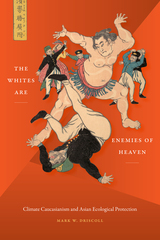


Global warming has finally made clear the true costs of using our atmosphere as a giant sponge to soak up unwanted by-products of industrial activity. As nations, businesses, and citizens seek workable yet fair solutions for reducing carbon emissions, the question of who should pay -- and how -- looms large. Yet the surprising truth is that a system for protecting the atmosphere could be devised that would yield cash benefits to us all.
In Who Owns the Sky?, visionary entrepreneur Peter Barnes redefines the debate about the costs and benefits of addressing climate change. He proposes a market-based institution called a Sky Trust that would set limits on carbon emissions and pay dividends to all of us, who collectively own the atmosphere as a commons. The Trust would be funded by requiring polluters to pay for the right to emit carbon dioxide, and managed by a non-governmental agency. Dividends would be paid annually, in much the same way that residents of Alaska today receive cash benefits from oil companies that drill in their state.
Employing the same spirit of innovation that brought millions of dollars to the nonprofit sector through his company Working Assets, Barnes sets forth a practical new approach to protecting our shared inheritance -- not only the atmosphere, but water, forests, and other life-sustaining and economically valuable common resources. He shows how we can use markets and property rights to preserve and share the vast wealth around us, allowing us not only to profit from it, but to pass it on, undiminished, to future generations.
Who Owns the Sky? is a remarkable look at the future of our economy, one in which we can retain capitalism's virtues while mitigating its vices. Peter Barnes draws on his personal experience as a successful entrepreneur to offer viable solutions to some of our most pressing environmental and social concerns.
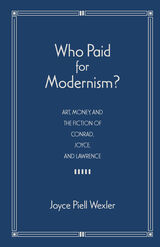

Daniel N. Shaviro sees the future of our national healthcare system as hinging on the issue of funding. The author of books on the economic issues surrounding Social Security and budget deficits, Shaviro is a skilled guide for anyone seeking to understand the financial aspects of government programs. Who Should Pay for Medicare? offers an accessible overview of how Medicare operates as a fiscal system. Discussions of Medicare reform often focus on the expansion of program treatment choices but not on the question of who should pay for Medicare's services. Shaviro's book addresses this critical issue, examining the underanalyzed dynamics of the significant funding gap facing Medicare. He gives a balanced, nonpartisan evaluation of various reform alternatives—considering everything from the creation of new benefits in this fiscal crunch to tax cuts to the demographic pressures we face and the issues this will raise when future generations have to pay for the care of today's seniors.
Who Should Pay for Medicare? speaks to seniors who feel entitled to expanded coverage, younger people who wonder what to expect from the government when they retire, and Washington policy makers who need an indispensable guidebook to Medicare's future.
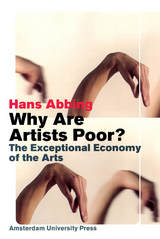
The economy of the arts is exceptional. Although the arts operate successfully in the marketplace, their natural affinity is with gift-giving, rather than with commercial exchange. People believe that artists are selflessly dedicated to art, that price does not reflect quality, and that the arts are free. But is it true?
This unconventional multidisciplinary analysis explains the exceptional economy of the arts. Insightful illustrations from the practice of a visual artist support the analysis.
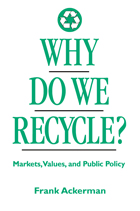
The earnest warnings of an impending "solid waste crisis" that permeated the 1980s provided the impetus for the widespread adoption of municipal recycling programs. Since that time America has witnessed a remarkable rise in public participation in recycling activities, including curbside collection, drop-off centers, and commercial and office programs. Recently, however, a backlash against these programs has developed. A vocal group of "anti-recyclers" has appeared, arguing that recycling is not an economically efficient strategy for addressing waste management problems.
In Why Do We Recycle? Frank Ackerman examines the arguments for and against recycling, focusing on the debate surrounding the use of economic mechanisms to determine the value of recycling. Based on previously unpublished research conducted by the Tellus Institute, a nonprofit environmental research group in Boston, Massachusetts, Ackerman presents an alternative view of the theory of market incentives, challenging the notion that setting appropriate prices and allowing unfettered competition will result in the most efficient level of recycling. Among the topics he considers are:
- externality issues -- unit pricing for waste disposal, effluent taxes, virgin materials subsidies, advance disposal fees
- the landfill crisis and disposal facility siting
- container deposit ("bottle bill") legislation
- environmental issues that fall outside of market theory
- calculating costs and benefits of municipal recycling programs
- life-cycle analysis and packaging policy -- Germany's "Green Dot" packaging system and producer responsibility
- the impacts of production in extractive and manufacturing industries
- composting and organic waste management
- economics of conservation, and material use and long-term sustainability
Backed by empirical data and replete with specific examples, the book offers valuable guidance for municipal planners, environmental managers, and policymakers responsible for establishing and implementing recycling programs. It is also an accessible introduction to the subject for faculty, students, and concerned citizens interested in the social, economic, and ethical underpinnings of recycling efforts.

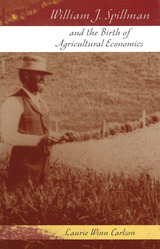

As the American demand for premium wine grapes intensified in the late twentieth century, the Northern California wine industry rapidly grew its boutique and innovative local designer winemaking to increase profit to meet demand and compete on a global scale. Set in the context of the regional, national, and global wine community, this story illuminates a regional story of how the Santa Barbara wine industry found solutions to current market conditions while utilizing local traditions to develop a new version of local wine terroir. An accomplishment that allowed them to compete in the global marketplace yet develop highly specialized wine that is unique to the region.
By employing leading-edge technology and entrepreneurship, the California Central Coast region of Santa Barbara became a model for the American vision of agricultural innovation and an integral part of the international wine trade, developing a personalized version of local wine terroir.

This book is the basis for airpower doctrine in the US, and demonstrates how forward looking Gen Mitchell was even though the technology for conducting air operations was in its infancy when it was written. It is essential reading for anyone concerned with airpower history or aerospace doctrine.
William Lendrum "Billy" Mitchell (December 28, 1879 – February 19, 1936) was an American Army general who is regarded as the father of the U.S. Air Force, and is one of the most famous and most controversial figures in the history of American airpower.
Mitchell served in France during the First World War and, by the conflict's end, commanded all American air combat units in that country. After the war, he was appointed deputy director of the Air Service and began to advocate increased investment in air power, claiming this would prove vital in future wars. He particularly stressed the ability of bombers to sink battleships and organized a series of dramatic bombing runs against stationary ships designed to test the idea that attracted wide notice from the public.
He antagonized many in both the Army and Navy with his arguments and criticism and, in 1925, was demoted to Colonel. Later that year, he was court-martialed for insubordination after accusing military chiefs of an "almost treasonable administration of the national defense." He resigned from the service shortly thereafter.
Mitchell received many honors following his death, including a commission by the President as a Major General. He is also the only individual after whom a type of American military aircraft is named: the B-25 "Mitchell."

With so much at stake and so much already lost, why did World War I end with a whimper-an arrangement between two weary opponents to suspend hostilities? After more than four years of desperate fighting, with victories sometimes measured in feet and inches, why did the Allies reject the option of advancing into Germany in 1918 and taking Berlin? Most histories of the Great War focus on the avoidability of its beginning. This book brings a laser-like focus to its ominous end-the Allies' incomplete victory, and the tragic ramifications for world peace just two decades later.
In the most comprehensive account to date of the conflict's endgame, David Stevenson approaches the events of 1918 from a truly international perspective, examining the positions and perspectives of combatants on both sides, as well as the impact of the Russian Revolution. Stevenson pays close attention to America's effort in its first twentieth-century war, including its naval and military contribution, army recruitment, industrial mobilization, and home-front politics. Alongside military and political developments, he adds new information about the crucial role of economics and logistics.
The Allies' eventual success, Stevenson shows, was due to new organizational methods of managing men and materiel and to increased combat effectiveness resulting partly from technological innovation. These factors, combined with Germany's disastrous military offensive in spring 1918, ensured an Allied victory-but not a conclusive German defeat.

As mass media burgeoned in the years between the first and second world wars, so did another phenomenon—celebrity. Beginning in Hollywood with the studio-orchestrated transformation of uncredited actors into brand-name stars, celebrity also spread to writers, whose personal appearances and private lives came to fascinate readers as much as their work. Women, Celebrity, and Literary Culture between the Wars profiles seven American, Canadian, and British women writers—Dorothy Parker, Anita Loos, Mae West, L. M. Montgomery, Margaret Kennedy, Stella Gibbons, and E. M. Delafield—who achieved literary celebrity in the 1920s and 1930s and whose work remains popular even today.
Faye Hammill investigates how the fame and commercial success of these writers—as well as their gender—affected the literary reception of their work. She explores how women writers sought to fashion their own celebrity images through various kinds of public performance and how the media appropriated these writers for particular cultural discourses. She also reassesses the relationship between celebrity culture and literary culture, demonstrating how the commercial success of these writers caused literary elites to denigrate their writing as "middlebrow," despite the fact that their work often challenged middle-class ideals of marriage, home, and family and complicated class categories and lines of social discrimination.
The first comparative study of North American and British literary celebrity, Women, Celebrity, and Literary Culture between the Wars offers a nuanced appreciation of the middlebrow in relation to modernism and popular culture.

A damning portrait of the dire realities of retirement in the United States—and how we can fix it.
While the French went on strike in 2023 to protest the increase in the national retirement age, workers in the United States have all but given up on the notion of dignified retirement for all. Instead, Americans—whose elders face the highest risk of poverty compared to workers in peer nations—are fed feel-good stories about Walmart clerks who can finally retire because a customer raised the necessary funds through a GoFundMe campaign.
Many argue that the solution to the financial straits of American retirement is simple: people need to just work longer. Yet this call to work longer is misleading in a multitude of ways, including its endangering of the health of workers and its discrimination against people who work in lower-wage occupations. In Work, Retire, Repeat, Teresa Ghilarducci tells the stories of elders locked into jobs—not because they love to work but because they must.
But this doesn’t need to be the reality. Work, Retire, Repeat shows how relatively low-cost changes to how we finance and manage retirement will allow people to truly choose how they spend their golden years.
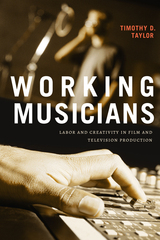

Are you looking for a career with professional rewards and personal satisfaction? Perhaps you'd like to find meaningful employment in the field of international relations? Working World is the perfect resource for making sound career choices, and is particularly valuable for those interested in exploring a career in international education, exchange, and development.
Sherry Mueller, president emeritus of a large nonprofit organization with an international focus, and Mark Overmann, a young professional on his way up, serve as spirited guidance counselors and offer valuable insight on launching a career, not just landing a job. The two authors—representing contrasting personalities, levels of experience, and different generations—engage in an entertaining dialogue designed to highlight alternative approaches to the same destination: making a difference in the world. With a rich mix of anecdotes and advice, the two authors present their individual perspectives on career development: identifying your cause, the art of networking, the value of mentors, and careers as "continuous journeys." Mueller and Overmann push job seekers to challenge assumptions about what it means to pursue a career in international relations and to recognize that the path to career success is rarely straight.
To help the job seeker chart the best course, Working World provides specific resources including annotated lists of selected organizations, websites, and further reading. Profiles of twelve professionals, from promising young associates to presidents and CEOs, illustrate the book's main topics. Each professional provides insight into his or her career choices, distills lessons learned, and offers practical advice about building a career in international affairs. All of these resources were chosen specifically to help job seekers map the next steps toward the internship, job, or other opportunity that will give shape to the career they envision.
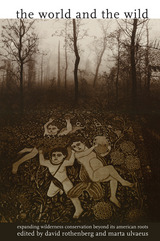
Foreword: Whither World Wilderness? / Vance G. Martin
Introduction: Wilderness in the Rest of the World / David Rothenberg
How Can Four Trees Make a Jungle? / Pramod Parajuli
The Unpaintable West / Zeese Papanikolas
Restoring Wilderness or Reclaiming Forests? / Sahotra Sarkar
For Indian Wilderness / Philip Cafaro and Monish Verma
In the Dust of Kilimanjaro / David Western
Why Conservation in the Tropics Is Failing / John Terborgh
"Trouble in Paradise": An Exchange / David Western and John Terborgh
Zulu History / Ian Player
Bruno Manser and the Penan / William W. Bevis
Roads Where There Have Long Been Trails / Kathleen Harrison
Volcano Dreams / Tom Vanderbilt
Recycled Rain Forest Myths / Antonio Carlos Diegues
The Park of Ten Thousand Waterfalls / Dan Imhoff
Mapping the Wild / Edward A. Whitesell
Earth Jazz / Evan Eisenberg
They Trampled on Our Taboos / Damien Arabagali
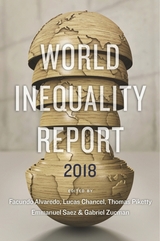
World Inequality Report 2018 is the most authoritative and up-to-date account of global trends in inequality. Researched, compiled, and written by a team of the world’s leading economists of inequality, it presents—with unrivaled clarity and depth—information and analysis that will be vital to policy makers and scholars everywhere.
Inequality has taken center stage in public debate as the wealthiest people in most parts of the world have seen their share of the economy soar relative to that of others, many of whom, especially in the West, have experienced stagnation. The resulting political and social pressures have posed harsh new challenges for governments and created a pressing demand for reliable data. The World Inequality Lab at the Paris School of Economics and the University of California, Berkeley, has answered this call by coordinating research into the latest trends in the accumulation and distribution of income and wealth on every continent. This inaugural report analyzes the Lab’s findings, which include data from major countries where information has traditionally been difficult to acquire, such as China, India, and Brazil. Among nations, inequality has been decreasing as traditionally poor countries’ economies have caught up with the West. The report shows, however, that inequality has been steadily deepening within almost every nation, though national trajectories vary, suggesting the importance of institutional and policy frameworks in shaping inequality.
World Inequality Report 2018 will be a key document for anyone concerned about one of the most imperative and contentious subjects in contemporary politics and economics.
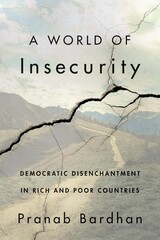
An ambitious account of the corrosion of liberal democracy in rich and poor countries alike, arguing that antidemocratic sentiment reflects fear of material and cultural loss, not a critique of liberalism’s failure to deliver equality, and suggesting possible ways out.
The retreat of liberal democracy in the twenty-first century has been impossible to ignore. From Wisconsin to Warsaw, Budapest to Bangalore, the public is turning against pluralism and liberal institutions and instead professing unapologetic nationalism and majoritarianism. Critics of inequality argue that this is a predictable response to failures of capitalism and liberalism, but Pranab Bardhan, a development economist, sees things differently. The problem is not inequality but insecurity—financial and cultural.
Bardhan notes that antidemocratic movements have taken root globally in a wide range of demographic and socioeconomic groups. In the United States, older, less-educated, rural populations have withdrawn from democracy. But in India, the prevailing Hindu Nationalists enjoy the support of educated, aspirational urban youth. And in Europe, antidemocratic populists firmly back the welfare state (but for nonimmigrants). What is consistent among antidemocrats is fear of losing what they have. That could be money but is most often national pride and culture and the comfort of tradition.
A World of Insecurity argues for context-sensitive responses. Some, like universal basic income schemes, are better suited to poor countries. Others, like worker empowerment and international coordination, have broader appeal. But improving material security won’t be enough to sustain democracy. Nor, Bardhan writes, should we be tempted by the ultimately hollow lure of China’s authoritarian model. He urges liberals to adopt at least a grudging respect for fellow citizens’ local attachments. By affirming civic forms of community pride, we might hope to temper cultural anxieties before they become pathological.
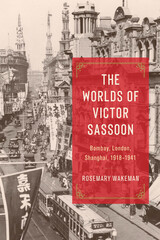
In this book, historian Rosemary Wakeman brings to life the frenzied, crowded streets, markets, ports, and banks of Bombay, London, and Shanghai. In the early twentieth century, these cities were at the forefront of the sweeping changes taking the world by storm as it entered an era of globalized commerce and the unprecedented circulation of goods, people, and ideas. Wakeman explores these cities and the world they helped transform through the life of Victor Sassoon, who in 1924 gained control of his powerful family’s trading and banking empire. She tracks his movements between these three cities as he grows his family’s fortune and transforms its holdings into a global juggernaut. Using his life as its point of entry, The Worlds of Victor Sassoon paints a broad portrait not just of wealth, cosmopolitanism, and leisure but also of the discrimination, exploitation, and violence wreaked by a world increasingly driven by the demands of capital.
READERS
Browse our collection.
PUBLISHERS
See BiblioVault's publisher services.
STUDENT SERVICES
Files for college accessibility offices.
UChicago Accessibility Resources
home | accessibility | search | about | contact us
BiblioVault ® 2001 - 2024
The University of Chicago Press









